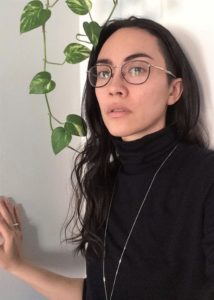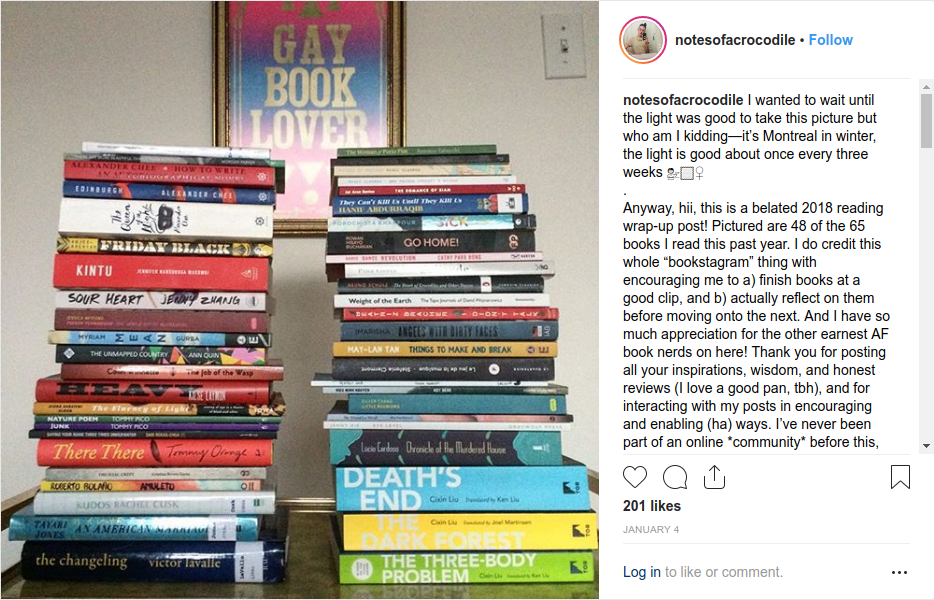Back in the summer, when reading outside was a thing, I was sitting on my stoop, engrossed in Tommy Orange’s There There, when an older white woman interrupted to inform me that she’d quit reading the same novel a quarter of the way through because it was “too sad.” She said it like, How could I be expected to digest such a thing? Like, Isn’t reading supposed to be a pleasure and what was this, some kind of tricky trick to make me feel bad? And then she asked me, dubiously, whether I liked it and whether I was going to finish it.
I did like it, and I was certainly going to finish it, and the bookseller in me set out to convince her that it would be worth her while to pick it up again. I found myself trying to persuade her that There There is also very funny (true) in addition to being sad, and nerdy and futuristic and violent and tragic and sweet and heavy.
I only said the funny part to her though, because I figured that’s what she was looking for: simple and entertaining. Then I told her I think it’s important to read the perspectives of others, even when it’s uncomfortable because… Here I trailed off as I was getting close to saying the thing that I kind of hate to see pasted all over the internet: “Reading will make you a better person.” As in, reading the stories of others will build your empathy and make you better, morally speaking.
She went on her way, and I doubt that I convinced her, but I finished Tommy Orange’s book, and then I kept thinking about why we read, or why I read, and whether it’s the same reason straight white women read, and whether I should be trying to convince straight white women to read differently, and what I hope to achieve by doing that.
Is this act even any of my business?
According to a 2015 industry-wide survey conducted by Lee & Low, straight white cis women are vastly overrepresented in the publishing world, in positions of power and elsewhere. Straight white cis women are also the industry’s most represented and targeted readers. According to a recent Guardian article, women, particularly white women, make up the vast majority of regular fiction readers, purchasing two thirds of all books sold in the UK. If the act of reading is touted as an easy path towards becoming a better person, and straight white women are the gatekeepers and target market of literary publishing, then we have to ask: who benefits from the supposed morality-boost of reading the stories of those more marginalized than themselves? And when people who are not straight or white or cis or able-bodied or settlers write, who is being addressed, in the publishing industry’s imagination? The white woman who wants to read a difficult story that will make her morally better? Who wants her empathy increased, but doesn’t want to read anything “too sad”?
Marlon James addresses this problem in a 2015 Facebook post, bluntly stating that although white women writers might have to pander to straight white male readers or editors, writers of colour are overwhelmingly pressured to pander to straight white female readers or editors. At a live event with the Guardian that same year, James mentioned that his experience growing up middle class in Jamaica doesn’t fit with the publishing industry’s idea of what a “Jamaican narrative” is—“You want stuff about the Jamaican ghetto or crime, you can find stuff. You never hear about the middle class.” In an interview with the LA Review of Books last year, Victor LaValle laments the industry’s appetite for “misery literature” which he sees “as a particular-path-that-is-rewarded in fiction by ‘minority’ writers.” Writers of colour, then, are often pressured to choose between two unsavoury options: write misery porn for straight white readers to wring their hands over, or write uplifting narratives with tidy endings that will leave these same readers believing they have bettered themselves by proxy.
At the same time, I think, what the heck, if a person wants reading to be a purely pleasurable experience, that leaves them feeling a false sense of righteousness, then I guess that’s up to them. Who am I to push them in tougher directions? Who am I to impose my Reading Agenda upon them? And surely it’s acceptable for people to gravitate towards books that make them feel seen, welcomed.
However, when the lens of publishing is that of whiteness, straightness, and cis-ness, the spectrum of who is seen, who is welcomed, and who is uplifted remains terribly narrow. In Gina Apostol’s recent exhilarating takedown of well-established white female writer and critic Francine Prose’s own takedown of a New Yorker story by Sadia Shepard, Apostol points to the “ways in which a noisy white voice, unknowing of the ways in which others read or write, can narrow our view of art and destroy a career.” Prose had heavily criticized Shepard, a Pakistani American filmmaker and writer, for supposedly plagiarizing a story by Mavis Gallant, when in fact, Shepard had repurposed the original, complicating its Canadian-European focus by crafting a sort of mirror-story about Pakistani immigrants to the United States. Apostol argues that Prose’s perspective is too rigid, too protective of whiteness and its attitude towards art, and thus unable or unwilling to appreciate the layered, enhanced effect of Shepard’s new reading and re-writing of Gallant’s original.
When a white reader reads a text by a “marginalized” writer, and feels she gains an understanding of the Other’s experience by it, she may neglect to realize that this writer has been heavily pressured to write for and to her. That this writer has been made to imagine her as their audience, has had to explain themselves endlessly in order to be relatable, so that she the reader can imagine herself gaining empathy by reading this book. And perhaps if she does not feel catered to, even on a subconscious level, she might dismiss the merits of the text itself. It seems to me that Sadia Shepard, in re-viewing Gallant’s story through a non-white lens, is challenging this assumption, that for a story to be worthwhile, it must be easily parsed by a white female reader like Prose.
I don’t want to entirely remove myself from this white-woman-reader category, to be clear. As a half-white person who grew up with plenty of class privilege, I could choose to seek solace in “relatable” young-white-women-finding-themselves narratives. Sometimes I do! There is plenty for me to resonate with there. Then again, as a racialized queer person, much of me isn’t reflected in those books, and so I seek elsewhere, for stories that seem to include me more, and also for the stories of those who don’t share my experiences but also very much do not share the experiences of the straight white cis female reader.
One of my side jobs is to curate and host a regular book club at a local bookstore. I often pick titles by QT/BIPOC authors, because they are the writers I most want to read. At a discussion of the late Taiwanese lesbian writer Qiu Miaojin’s Notes of a Crocodile, a white woman in attendance, who had not read the book, kept chiming in to ask whether the story was “a universal narrative.” It was clear that this was something she felt was required, in order to read it herself. The thing is—no, Notes of a Crocodile is not a “universal narrative.” It’s an idiosyncratic, deeply emotional, satirical, culturally-specific text that was somewhat perplexing to me, even though I share a level of East Asian-ness and queerness with the author. But despite not being able to fathom all of it, I loved it! I love Qiu’s writing, which I can only access in translation. I love how weird it is, how obsessive, how circular, how alienated, tender, harsh, and complicated. I’m glad to be invited into her brain, or parts of it, after she’s long gone, even if hers is wholly unlike my own. And I don’t think this makes me a better person, or increases my empathy. I’m just fascinated by other weirdos. I did initially pick up Qiu’s books because I thought I’d see myself in them, sure. But even though that didn’t really happen, I stuck around because I still wanted to get to know her.
How do we get to know a writer through their writing, anyway? In a recent short fiction workshop, I was grappling with the difficulties of micro-fiction. I struggled not to provide elaborate context, explain myself and my characters, give a back-story. My stories felt baggy to me, not concise enough, not minimalist enough. In response, our instructor, Jennifer Tseng, pointed us all towards an essay by Michelle Cliff, “A Journey Into Speech” in The Land of Look Behind. Cliff, born and raised in Jamaica, then educated in Europe, shares her process of coming into her own voice. First, she learned to write in the colonizer’s language, with the colonizer’s inherent context and logics. She then started to realize that she was admired for her style but not her actual content: “I felt my use of language and imagery had sometimes masked what I wanted to convey. It seemed sometimes that the reader was able to ignore what I was saying while admiring the way in which it was said.” To make herself known through writing, she started channelling her own “split consciousness,” letting her rage come through, her other voices, the other fragments of herself. Those of us, and we are many and varied, whose experiences and identities are not the assumed norm, often do have to explain ourselves more.
Maybe minimalism won’t work for a lot of us. Or maybe we can repurpose it somehow. I fear being straight-washed or white-washed by readers who don’t understand where I’m coming from. At the same time, I want to be able to write without having to explain so much, without having to assume that readers, editors and publishers won’t get it unless I spell it out.
Sometimes, especially when I read writers who share experiences and/or identities with me, I feel illuminated, heartbroken, connected, and grateful for it. Sometimes I’m simply entertained, and that’s all, and that’s perfectly fine.
Other times, I’m challenged and confused and curious and aware that I’m only grasping like 10% of the richness in a text because of who I am and what my life references are. Often, the only lasting knowledge I feel I’ve gained from reading so much is the awareness that I don’t know anything about anything. Reading is an ongoing process of being humbled in all kinds of ways—and that humbling feels so necessary. Maybe it leads to increased empathy? Maybe I’ve just argued myself into a corner!
Don’t get me wrong: movements towards more diversity in books of all kinds are important and necessary. I just think we need to look further—at who is occupying positions of power at all levels of publishing, as well as in the institutions that teach creative writing, instead of just focusing on the end result. Gina Apostol, in her response to Prose, confronts “the way readers like [her] read stories by people like Sadia Shepard, as if there were only one way, the white-dominant way, to think and read and write fiction.”
Let’s continue making space, continue pushing for non-dominant ways of thinking and reading and writing to flourish, challenge, entertain and yes, sometimes alienate—at all levels of the publishing world.

Helen Chau Bradley is a reader, writer, musician and arts administrator. She hosts Strange Futures, a bimonthly book club at Librairie Drawn + Quarterly. Her work has appeared or is forthcoming in the Montreal Review of Books and Cosmonauts Avenue. She writes tiny reviews and reading reflections as @notesofacrocodile on Instagram.
